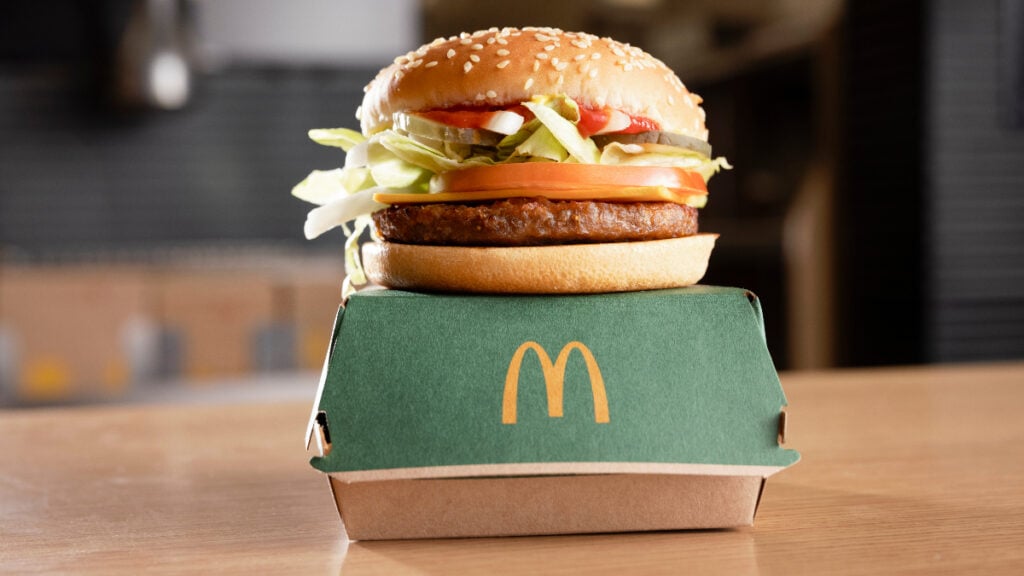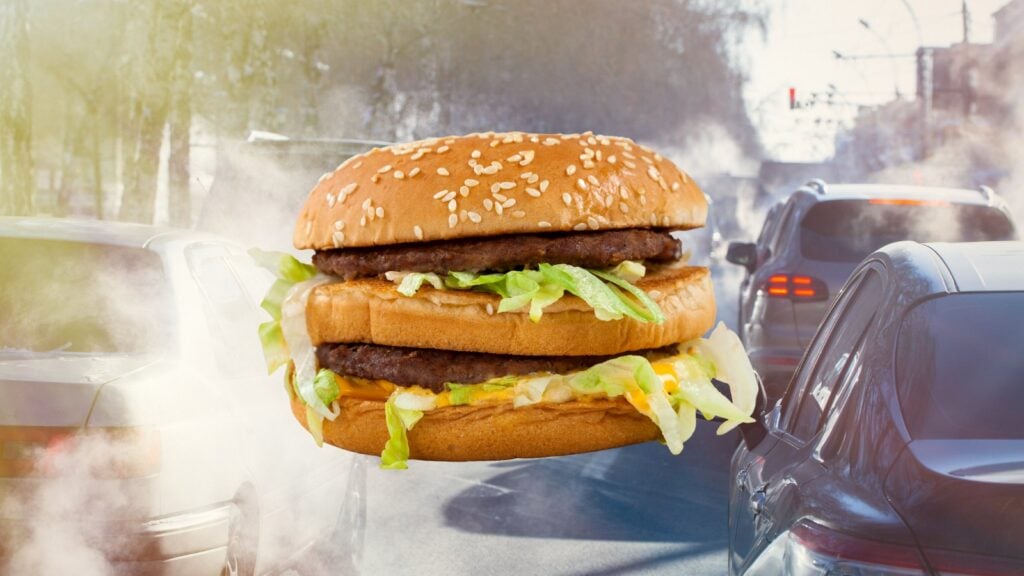Chowing down on a Big Mac from McDonald’s is the equivalent of driving nearly eight miles in terms of carbon dioxide emissions. That’s according to an analysis by the Mirror, which compared the environmental impact of 11 of the fast food chain’s options.
The publication ran the ingredients and their weights through a carbon calculator called Plate up for the Planet to get the results.
Beef and CO2
It found that producing a Big Mac leads to the emission of 2.35kg of CO2. This is the same as driving an average UK petrol car 7.88 miles.
Even more dour, the Double Big Mac emits as much CO2 as a 14.95 mile journey, the Mirror reports.
Beef, heavily featured in both burgers, has continually been called out as one of the most destructive foods on the planet.
For context, McDonald’s beef patties emit 2.11kg of CO2. In contrast, the chain’s plant-based beef patties, from its new McPlant burger, are responsible for just 0.12kg of CO2.
But where the burger ingredients are sourced from is also to blame for their large carbon footprints.
According to the Mirror, McDonald’s UK obtains its beef from Ireland or the UK, its gherkins from Turkey, and its lettuce from Holland or France. Meanwhile, the mayonnaise is made in Lancashire.
Carbon footprint of McDonald’s food

Out of the 11 products analyzed, the meat-based options make up the top eight worst emitters.
The Quarter Pounder, the Bacon Double Cheeseburger, and 20 McNuggets account for 2.99kg, 2.87kg, and 2.12kg of CO2 equivalents respectively.
This is on par with driving 10.03, 9.63, and 7.15 miles in an average UK car, also respectively.
The lowest emitter was a large fries, which carries a carbon footprint of 0.15kg of CO2e.
A spokesperson for McDonald’s told the Mirror: “We take our responsibility around the climate incredibly seriously, and recently launched our Plan for Change which sets out a series of ambitious goals that will help us accelerate our efforts to reduce our impact on the planet.
“This includes our aim to achieve net zero emissions across our entire business and value chain in the UK & Ireland, by 2040.”
McDonald’s eco-friendly efforts
McDonald’s has made moves as of late to improve its environmental impact. The chain recently announced it was reducing the amount of virgin fossil fuel-based plastic in its Happy Meals by 90 percent.
However, some have criticized the chain for not doing enough.
Stephanie Feldstein is the population and sustainability program director for the Center of Biological Diversity, a non-profit focusing on animal protection.
She called out McDonald’s for its half-hearted efforts, claiming the chain was simply ‘nibbling around the edges of sustainability’.
“McDonald’s serves billions of burgers a year, with massive consequences for our climate. According to the company’s own records, beef is responsible for 29 percent of its carbon footprint,” Feldstein said.
She urged the fast food giant to “overhaul its menu.” Specifically, by bringing the meat-free McPlant burger to all stores and actively reducing the amount of beef it serves.






